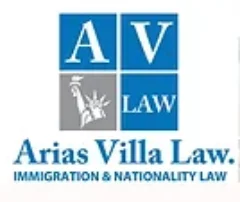The Immigration and Naturalization Act (INA) mandates the removal of aliens who are present in the United States (U.S.) in violation of the immigration laws. The removal of aliens is conducted through immigration court proceedings; these proceedings are currently called “removal proceedings.” Hence, before the immigration reform in 1997, these proceedings were called “deportation proceedings.” Thus, whether an alien is in removal or deportation proceedings depends on when the immigration case against that alien commenced. If proceedings commenced before 1997, they care called “deportation proceedings;” if they commenced after 1997, they are called “removal proceedings.” Any alien may be subject to removal or deportation proceedings. This means, an alien who is totally without status and even an alien already admitted as lawful permanent resident –green card holder.
INA lists six major categories of aliens subject to removal. Within these categories, however, there are subcategories that subject aliens to removal proceedings as well. This article does not include information about the subcategories due to space problems. The six major categories that make an alien removable are: (1) aliens who were inadmissible at time of entry or adjustment of status or have violated status; (2) aliens who have committed criminal offenses; (3) aliens who have failed to register or falsified documents; (4) aliens subject to security or related grounds; (5) aliens who have become a public charge; and (6) aliens unlawfully voted.
If Immigration and Customs Enforcement (ICE) detects that an alien is within one of the above categories or subcategories will issue a Notice to Appear (NTA). The NTA is the charging document that refers the alien to removal proceedings and the immigration judge. The NTA lists the reasons why the alien is subject to removal proceedings. Normally, the alien in removal proceedings must attend two hearings: a Master Calendar Hearing and an Individual Hearing. An alien may be represented by an attorney during the course of removal proceedings. Indeed, it is advisable to hire an immigration attorney to represent you in these proceedings because they require knowledge of technical and complex legal issues and procedural rules. If the alien does not attend these hearings, the immigration judge may order the alien removed or deported in absentia; this is, without being present.
The alien’s defense in removal proceedings is called “relief.” During the Master Calendar Hearing the alien would present its relief from removal according to what is available within INA. An alien may have more than one relief or no relief available. It is precisely here when the advice of an immigration attorney becomes crucial. If the alien’s relief is successful, the alien is granted that relief and is not removed or deported. If the alien’s relief is denied or there is no relief available, the immigration judge orders the alien removed or deported from the U.S. The alien or ICE’s attorney may, within 30 days, appeal the immigration judge’s decision before the Board of Immigration Appeals (BIA).
Immigration attorney Martha L. Arias can represent you in removal or deportation proceedings. She will review the NTA that ICE issued against you, study the possible relief available, and inform you of the possibilities INA offers in your particular case. If you have been charged with a criminal offense, you may also contact deportation lawyer Miami, Martha L. Arias who works closely with a criminal law attorney.

